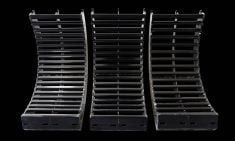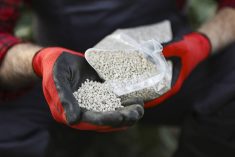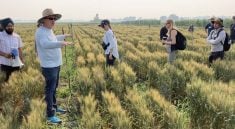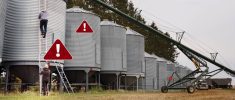An on-farm incident that injured a worker and landed his employer in court isn’t as simple as broken regulations, says an ag safety expert.
“It’s bigger than just PPE (personal protective equipment),” said Robert Gobeil, agricultural safety and health specialist with the Canadian Agricultural Safety Association (CASA).
Skyline Harvest Corp., a Blumenort-based company, received an $8,000 fine from Steinbach’s provincial court in a hearing on February 17.
According to a report in the Carillon the company pleaded guilty to a charge of “failing to provide complete instruction or training in the proper use of protective clothing.”
Read Also
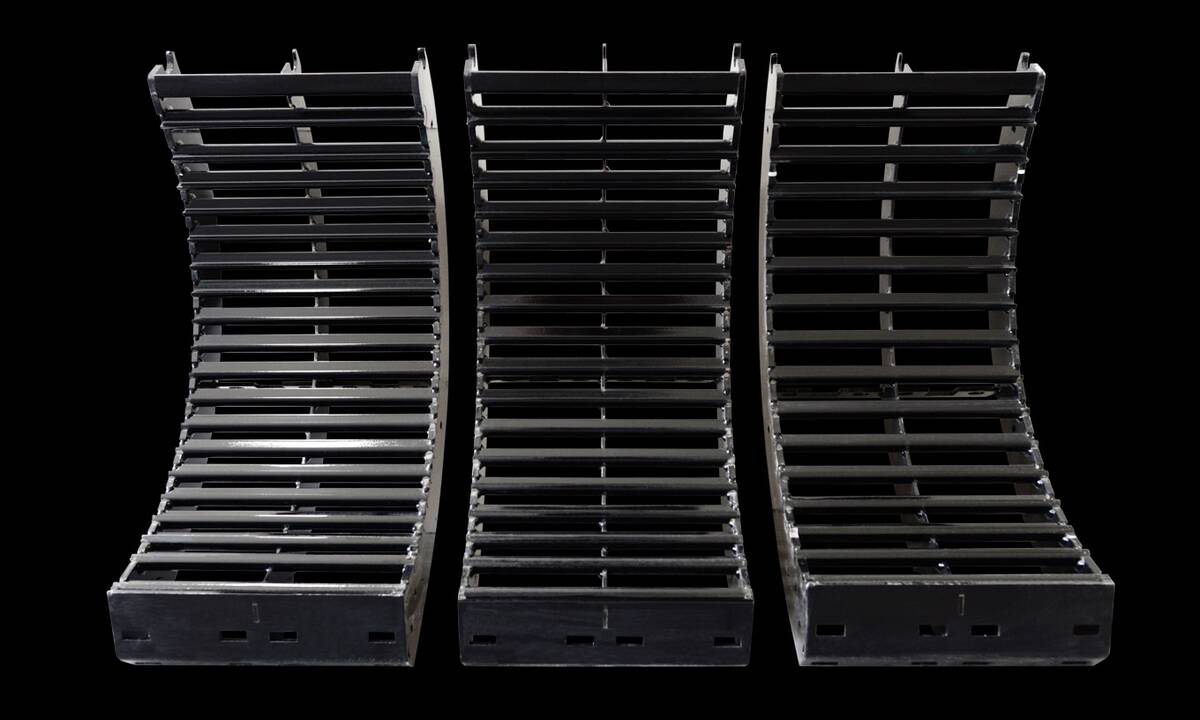
MANITOBA AG DAYS 2026: Stacked equipment category expected at Innovation Showcase
Ten of 28 Innovation Showcase entries at the Manitoba Ag Days 2026 farm show Jan. 20-22 in Brandon are in the equipment category.
On Oct. 9, 2019, an employee of the company suffered injuries including a “floating piece of bone that had broken off and was still in his neck” after he was struck by the bucket of an excavator.
Farming is a dangerous business and having a culture of safety is important.
Workers were harvesting corn when the harvester and a tractor-trailer got stuck in the muddy field. Excavators were brought in to extract the machinery, company lawyer Mathieu Lafreniere told the court.
After lunch, a Skyline employee hopped into an excavator and spun the boom around. The bucket struck another worker who had bent over to pick up something off the ground and may have been hidden by cornstalks. He was also not wearing high-visibility clothing.
Lafreniere said the worker lost consciousness for about 30 seconds. His co-workers brought him to the edge of the field and took him to the hospital in Steinbach.
The injured man spent about three hours in the hospital and was off work for a bit more than two months. He also continued to receive physical therapy and massage treatments into the new year.
He has since returned to full duties, Lafreniere said, but experiences “tenderness” in his neck from time to time.
A Workplace Health and Safety investigation followed soon after the incident. Skyline is now in compliance with regulations, Lafreniere said.
The Manitoba Co-operator contacted Skyline Harvest that declined to comment.
While the worker escaped catastrophic injury, this was a serious incident, Gobeil said.
“That worker definitely incurred a fairly high level of trauma in the long run,” Gobeil said. He cited the time off work, physiotherapy, and the pain the injury still causes.
“It’s probably going to be a lifelong, maybe not debilitating injury for him, but a lifelong thing, especially as he gets up in years,” Gobeil said.
The injury probably affected the worker’s family who had to see him in pain, Gobeil added. Skyline Harvest received media attention and fines.
“It’s kind of like that boat going across the water leaving a wake,” he said.
The Workplace Health and Safety Act and Regulation says employers must provide workers with high-visibility safety apparel when a worker is “exposed to the risk of injury from a moving vehicle or mobile equipment” and must train workers on when this PPE must be worn.
“That’s really most situations on the farm,” said Morag Marjerison, KAP’s farm safety consultant.
There’s a lot of blind spots on farm equipment, she said. “There’s good reason to use it.”
PPE is also enforced heavily, she said. Prosecutions are fairly rare, she said, but Workplace Health and Safety does a lot of inspections and has stepped up on-farm inspections in recent years.
While likely not a majority, Marjerison said, some farms she’s worked with have made wearing high-visibility gear a matter of course.
“It’s way easier to make it standard practice than to analyze when they should be and where they shouldn’t be,” she said.
This needn’t mean wearing those “horrible” nylon vests at all times, Marjerison added. High-vis T-shirts, jackets and coveralls are fine and may be more comfortable and usable.
But PPE, while required, isn’t good enough. It’s actually the last line of defence, Gobeil said. It’s what you use when you can’t eliminate the hazard any other way.
Excavators have huge blind spots, he said. If the worker was in a blind spot, a high-vis vest wouldn’t have helped.
PPE can even cause, what Gobeil called, “superman syndrome,” e.g. he’s seen construction workers in a high-visibility vest, holding a stop sign step into traffic and just expect it to stop.
“They need to be realistic with the idea behind using PPE,” he said.
At a basic level, prevention involves stopping, thinking about the task at hand and potential hazards, and asking what you can do to stop those hazards from hurting yourself or others, Gobeil said.
There’s still high numbers of farm accidents happening and it’s KAP’s goal to help farmers reduce those, Marjerison said. Farmers can come to KAP with safety-related questions or to get help putting safety plans into place, she added.




